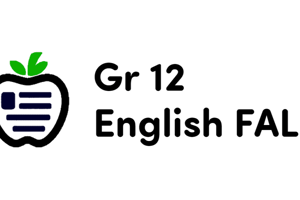Podcast
Questions and Answers
Which of the following verbs adds -es in the third person singular?
Which of the following verbs adds -es in the third person singular?
- Go
- Fly
- Try
- Watch (correct)
What is the base form of the verb 'go' in the present simple?
What is the base form of the verb 'go' in the present simple?
- Going
- Go (correct)
- Goes
- Goed
How is the negation formed in the present simple?
How is the negation formed in the present simple?
- Using 'never' before the verb
- Using 'no' before the verb
- Using 'not' before the verb
- Using 'do/does not' before the verb (correct)
What is the correct form of the verb 'be' in the present simple for 'he/she/it'?
What is the correct form of the verb 'be' in the present simple for 'he/she/it'?
How are yes/no questions formed in the present simple?
How are yes/no questions formed in the present simple?
What is the correct form of the verb 'have' in the present simple for 'he/she/it'?
What is the correct form of the verb 'have' in the present simple for 'he/she/it'?
How are wh-questions formed in the present simple?
How are wh-questions formed in the present simple?
What happens to verbs ending in a consonant + y in the third person singular?
What happens to verbs ending in a consonant + y in the third person singular?
Flashcards are hidden until you start studying
Study Notes
Grammar Rules of Present Simple
Formation:
- The present simple is formed using the base form of the verb.
- The base form is the infinitive form of the verb without "to".
- For example:
- Base form: go
- Present simple: I go, you go, he/she/it goes, we go, they go
Spelling Rules:
- Verbs ending in -o, -sh, -ch, -ss, or -x add -es in the third person singular (he/she/it).
- For example: go -> goes, watch -> watches
- Verbs ending in a consonant + y, change the y to -ies in the third person singular (he/she/it).
- For example: try -> tries, fly -> flies
Irregular Verbs:
- Some verbs have irregular forms in the present simple.
- For example:
- Be: I am, you are, he/she/it is, we are, they are
- Have: I have, you have, he/she/it has, we have, they have
Negation:
- The negation is formed using "do/does not" + the base form of the verb.
- For example:
- I do not go, you do not go, he/she/it does not go, we do not go, they do not go
Questions:
- Yes/No questions are formed using "do/does" + the subject + the base form of the verb.
- For example:
- Do I go?, does he/she/it go?, do we go?, do they go?
- Wh-questions are formed using the question word + "do/does" + the subject + the base form of the verb.
- For example:
- What do I do?, where does he/she/it go?, what do we do?, what do they do?
Formation of Present Simple
- The present simple is formed using the base form of the verb, which is the infinitive form without "to".
- The base form is used for all subjects except the third person singular (he/she/it), which takes the -s form.
- Examples: I go, you go, he/she/it goes, we go, they go
Spelling Rules for Present Simple
- Verbs ending in -o, -sh, -ch, -ss, or -x add -es in the third person singular (he/she/it).
- Examples: go -> goes, watch -> watches
- Verbs ending in a consonant + y, change the y to -ies in the third person singular (he/she/it).
- Examples: try -> tries, fly -> flies
Irregular Verbs in Present Simple
- Some verbs have irregular forms in the present simple.
- Examples: Be (I am, you are, he/she/it is, we are, they are) and Have (I have, you have, he/she/it has, we have, they have)
Negation in Present Simple
- The negation is formed using "do/does not" + the base form of the verb.
- Examples: I do not go, you do not go, he/she/it does not go, we do not go, they do not go
Questions in Present Simple
- Yes/No questions are formed using "do/does" + the subject + the base form of the verb.
- Examples: Do I go?, does he/she/it go?, do we go?, do they go?
- Wh-questions are formed using the question word + "do/does" + the subject + the base form of the verb.
- Examples: What do I do?, where does he/she/it go?, what do we do?, what do they do?
Studying That Suits You
Use AI to generate personalized quizzes and flashcards to suit your learning preferences.




